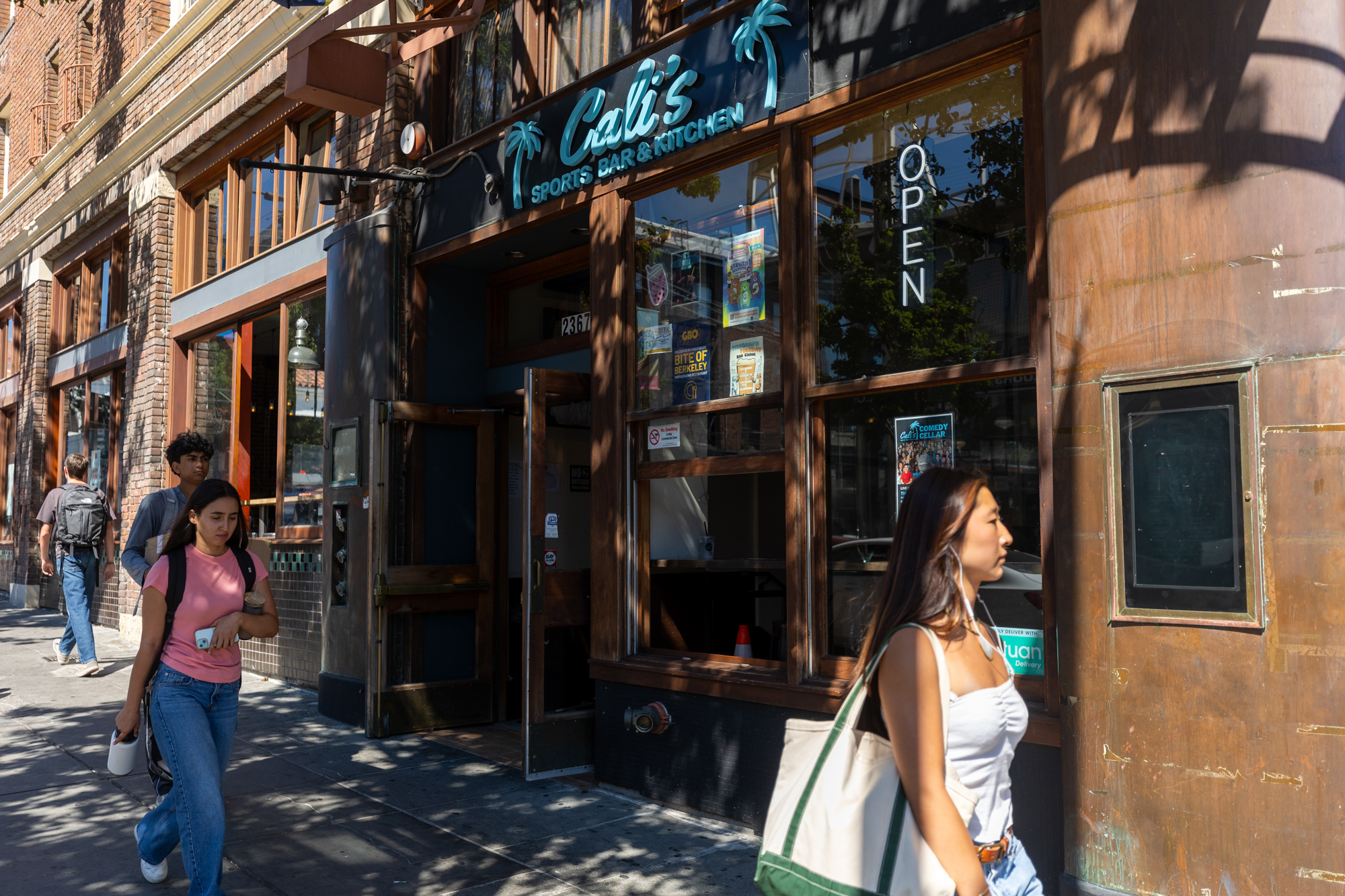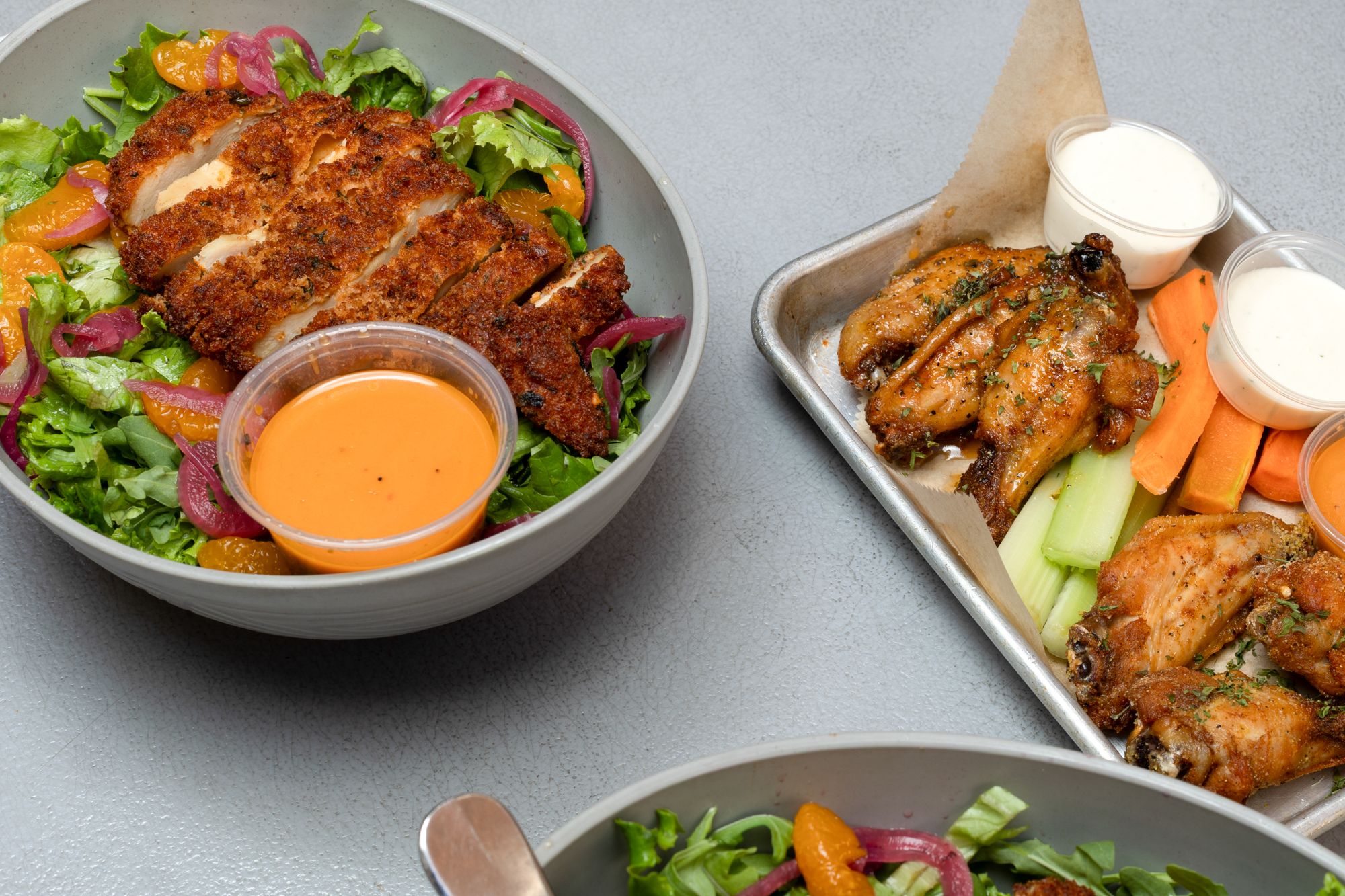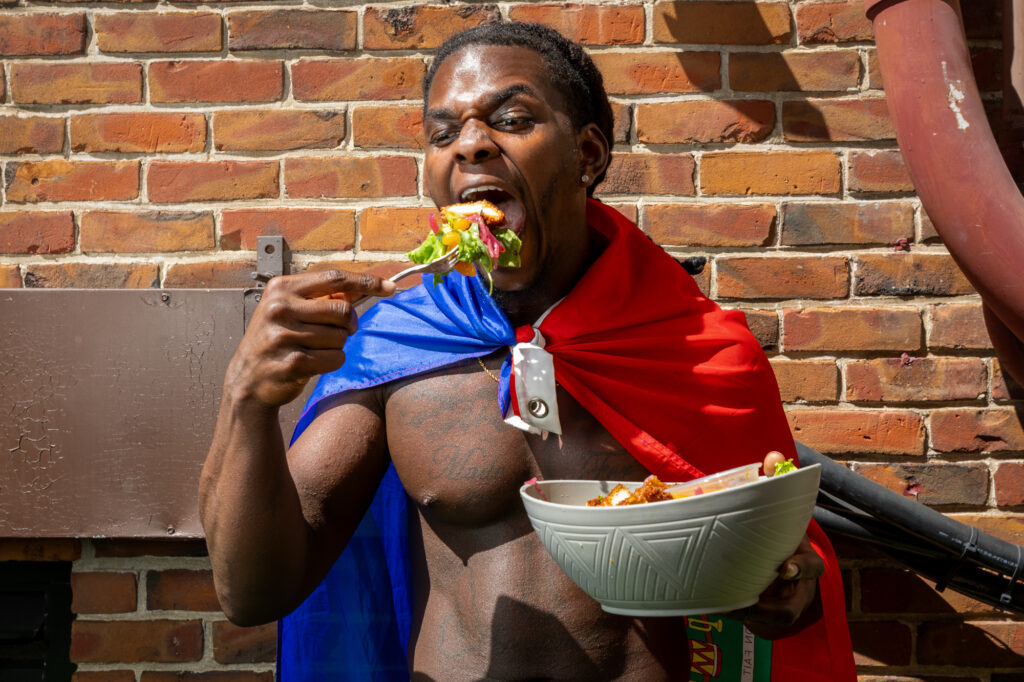Maybe the most outspoken member of this new wave is Jordan Gomes, aka Stunnaman02. Though Stunnaman had already had certified hits like “Big Steppin’” (which even has an official 49ers’ remix), his catchy 2024 ode to his love of leafy greens, “Eat a Salad,” is what put him in the pantheon of health-conscious Frisco rappers. In the song, Stunnaman extols the nutritious properties of fresh ingredients like “lemon, lime, honey … agave if you’re vegan.” To promote the single, he posted videos of himself performing custom verses that were essentially recipes for different salads he would prepare on camera — Asian chicken, watermelon and Tajin, and even a quinoa salad soup.
Then, last month, Stunnaman released another healthy slap, “Veggies,” and shot the music video inside L.A. grocery stores, where he goes through the produce aisles naming the benefits of various fruits, vegetables and spices: “If I need the antioxidants, I nibble on cacao / Turmeric with the ginger it could really cleanse your bowels.”

Now, Stunnaman has parlayed his newfound status as a hip-hop health influencer into a burgeoning side hustle. In August, he created his own signature salad at Cali’s Sports Bar in Berkeley, in collaboration with owner Wilson Wong. Made with ingredients that don’t trigger the rapper’s eczema, the salad features a choice of grilled or fried chicken, a bed of romaine lettuce and arugula, sliced onions, a custom lemon-pepper hot honey vinaigrette and a side of vegan ranch, which he loves to drizzle on top with the dressing. Stunnaman also has his own juice brand. And he collaborates with local restaurants like Square Pie Guys, which recently released a Stunnaman-inspired “salad pizza.”
With his black zip-up polo and pulled-back dreads, Stunnaman has the energy of a celebrity trainer, complete with the catchy mantra (“We Still Winning!”). He says he’s been paying attention to nutrition since he was a kid — a response to struggles with his eczema and his weight. And as the first and last person in his family to be born and raised in San Francisco, he pushes more than just healthy living. He was raised to prize “knowledge of self,” one of the seven principles of Kwanzaa and a focus of John Muir Elementary’s African cultural enrichment program.
“All the children my age [who went to John Muir], majority melanated children, we’re learning about not just the knowledge of self, but the history of Africa. We had to call all our elders ‘auntie’ or ‘uncle,’” he recalls.
While attending St. Mary’s College, he traced his genealogy four generations back on his mother’s side, finding Narragansett Native American ancestry as well as Angolan by way of Cape Verde. After seeing a picture of his Native maternal great-grandfather, Stunnaman was pleased to find his ancestor was also Black, just like him. He credits his mother and grandmother for instilling that pride in him, breathing affirmations into his everyday life that he now pays forward in his raps.
In fact, Stunnaman believes he’s been “sent here from another dimension to restore the collective equilibrium through holistic methods,” as he puts it in the intro to “Eat a Salad.” Having been raised Christian, he also credits God.

You might think that with its farmers market ethos, the Bay Area would have a long history of vegetable-themed rap. But prior to the recent trend, the last time I remember hearing a rap song about salad was Dead Prez’s 2001 anthem “Be Healthy,” which, somewhat cringily, rhymed “crouton” and “futon.” Before that, “healthy rap” mostly existed in the lines of rappers who claimed the Five Percent Nation and were taught to “eat to live” by Elijah Muhammad’s book series of the same name, which promotes vegetarianism and avoiding pork and processed foods. These teachings deeply influenced rappers like KRS-One, Rakim and Poor Righteous Teachers. In the ’90s, A Tribe Called Quest’s “Ham n Eggs” rails about the high-cholesterol soul food diets their grannies raised them on, and how difficult it was to make better food choices. It was my first time seeing that kind of health-focused pushback in hip-hop lyrics. But this was mostly all on the East Coast.

